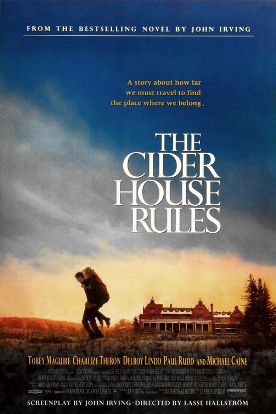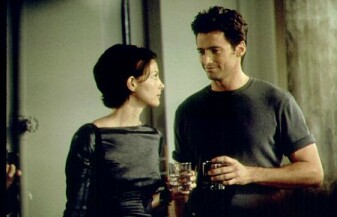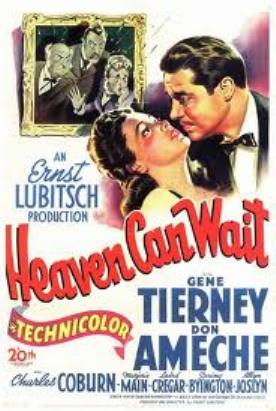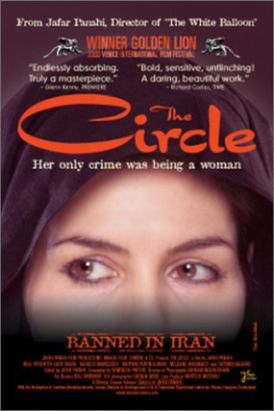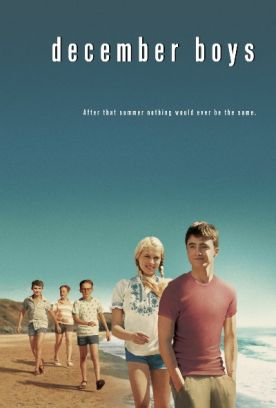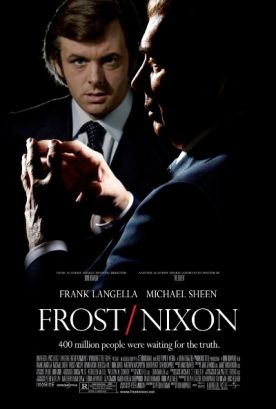Cider House Rules, The
The Cider House Rules, directed by Lasse Hallström, is the inspiring tale of an abortionist, Dr. Wilbur Larch (Michael Caine), and his long life of tireless, unselfish, devoted service to unwanted children in an orphanage in New England in the early part of the century—when, of course, he was forced to ply his trade illegally. Hm. I wonder if there could be any kind of a political agenda here? It’s just possible, I suppose.
The title comes from an observation made about the list of rules posted on the wall of a dormitory where migrant workers come every autumn to pick apples. The first few rules—the only ones we hear—are confusingly worded but all seem to add up to one rule, which is don’t go on the roof. This seems reasonable enough, considering the rickety state of the building and the likelihood of a serious accident to anyone who puts a foot wrong, but one of the migrants trenchantly observes that “Someone who don’t live here made them rules.” This seems to her—and to Hallström and to John Irving, who wrote the novel on which the film is based—to be a conclusive if somewhat illogical reason why the rules should not be obeyed. Fortunately, no one is killed by crashing through the roof as a consequence of not obeying them.
You get the analogy? The rules against abortion are (or were, when there were such things) made by men, who do not live in women’s bodies. Therefore, women need not obey them. Indeed, it is a question whether they need obey any rules imposed upon them by a patriarchal society. The only point in the film where any kind of moral judgment is made is when it is revealed that one of the migrant workers, Mr. Arthur Rose (Delroy Lindo), has been committing incest with his own daughter. Paradoxically, both this act and the rule against it must be regarded as artefacts of the patriarchal culture, but the film comes down on the side of opposition to incest anyway. Not to be disregarded, of course, is the fact that it provides an opportunity for the daughter to have a wholly-approved abortion.
The apple-picking in this movie takes place on the Maine estate of Wally Worthington (Paul Rudd)—a handsome young man who is a pilot in the dangerous Burmese theatre of the last World War. Home on leave from the Army Air Force, Wally turns up in his smart roadster at the St Cloud’s orphanage, run by Dr. Larch, where the good doctor obligingly performs an abortion on his gorgeous, pouting girlfriend, Candy (Charlize Theron). While there he makes quite an impression, and Candy even more of one, on Dr. Larch’s young orphan assistant, Homer Wells (Tobey Maguire). Having lived in the orphanage all his life, Homer thereupon decides he needs to see more of the world. There follow idyllic days of picking apples along with the migrants on Wally’s estate and idyllic nights of screwing Wally’s girl while Wally is risking his life for his country in the Far East.
Candy explains her behavior by saying, “I’m not good at being alone,” but, of course, she also benefits from the fact that the unwritten rule against a girl’s screwing around on her boyfriend overseas is—you guessed it—made up by men. She is exempt from it ipso facto. Of course the great thing about this exemption is that men can benefit from it, too. Or at least abortionists can, who are presumably to be regarded as a sort of honorary women for the essential service they perform. Dr. Larch, for instance, is to be applauded not only for his career as an illegal abortionist but also for falsifying medical records in order to keep Homer out of the army and for forging medical and academic credentials in order to permit Homer to succeed him at the orphanage. More of those pesky patriarchal rules! Too bad that he meets an untimely end through his addiction to sniffing ether while listening to “Ukulele Lady” on the Victrola. One supposes it was the patriarchy that drove him to it.
Discover more from James Bowman
Subscribe to get the latest posts to your email.

